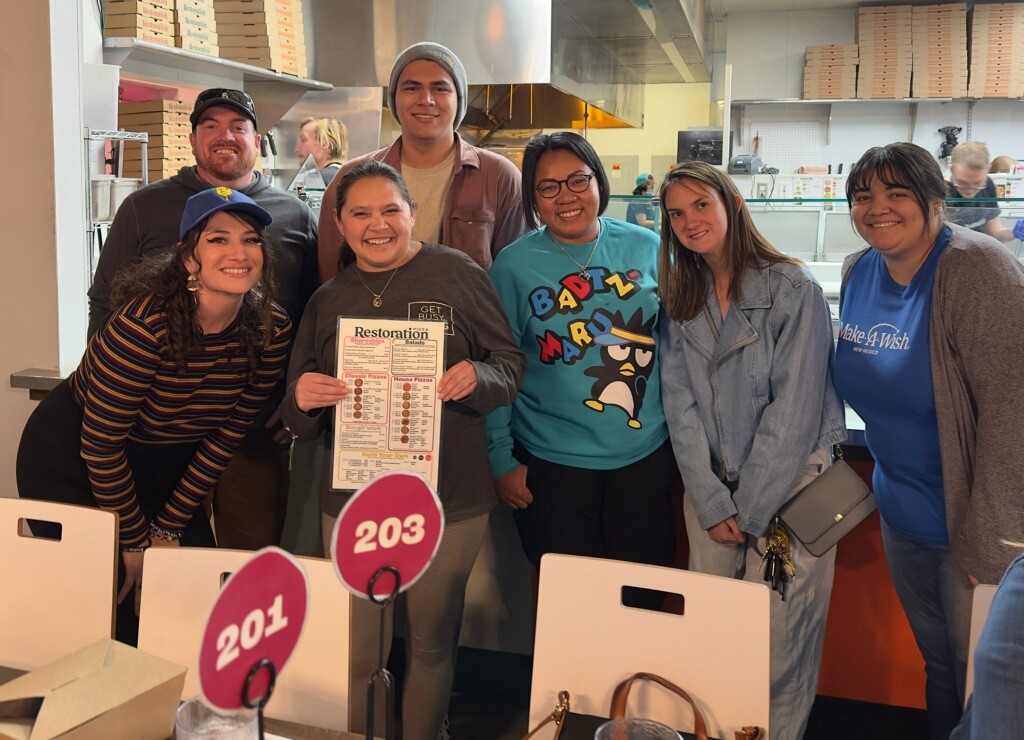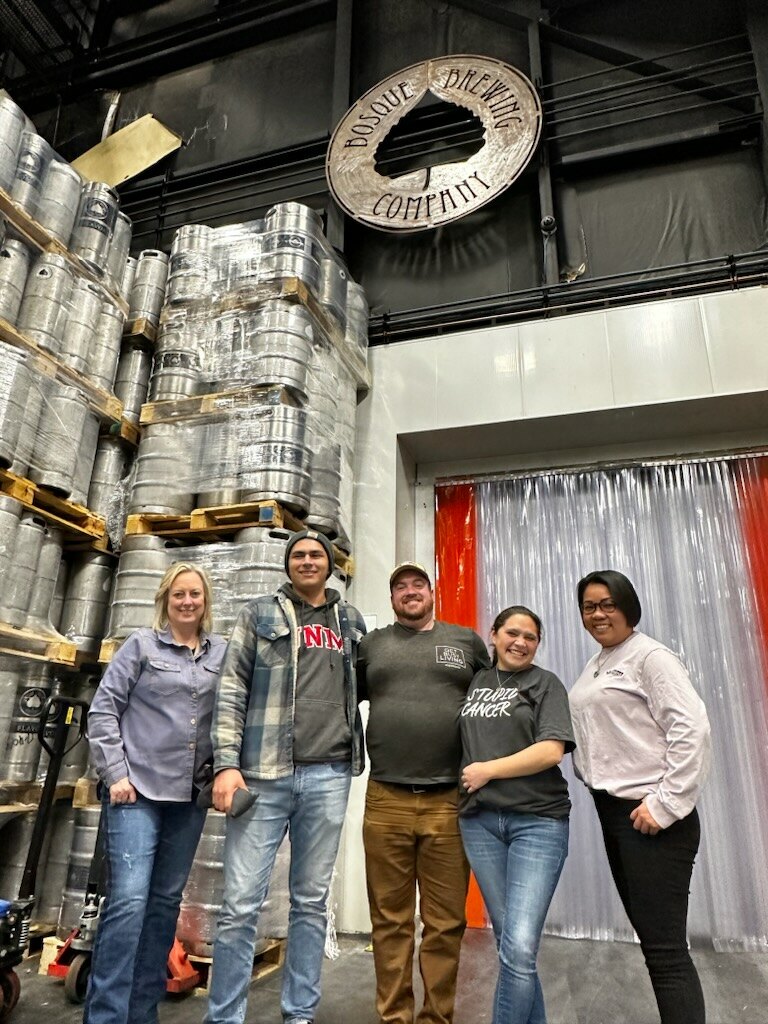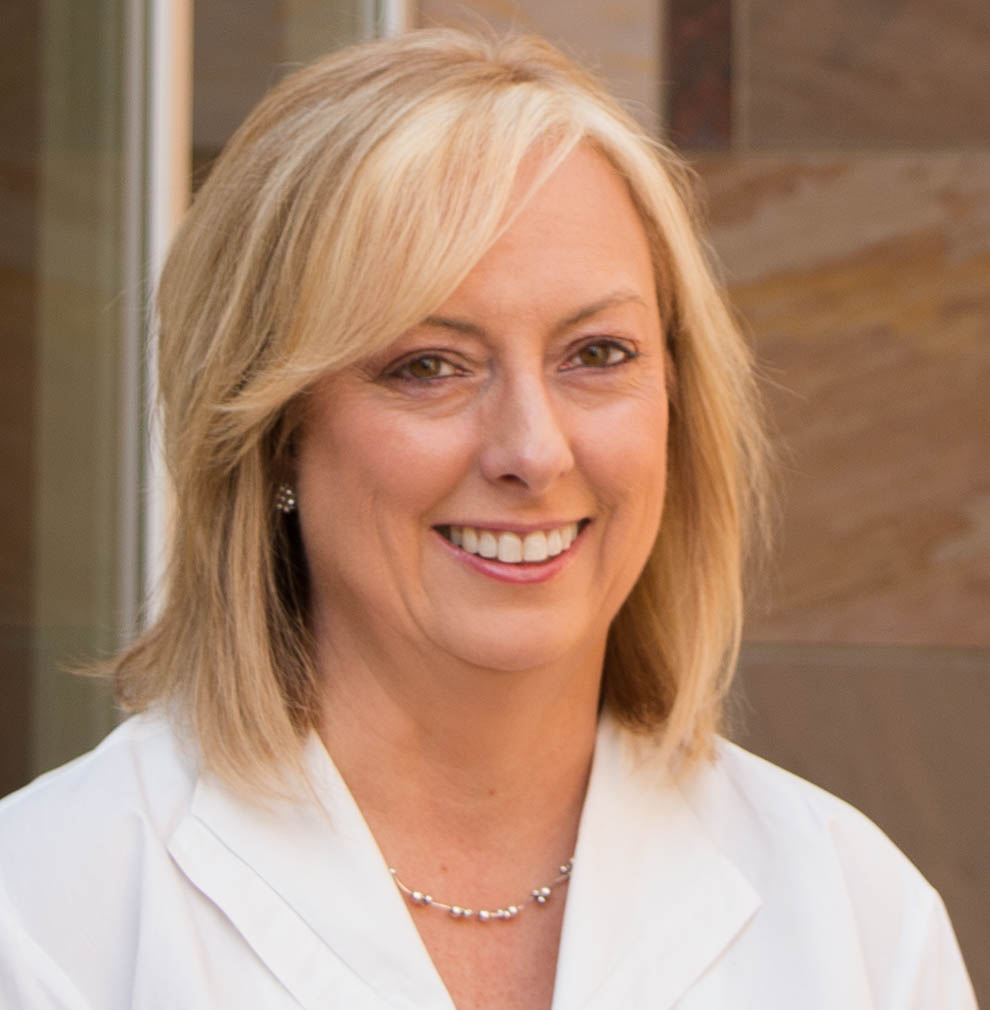Comprehensive cancer care begins with a diagnosis, but it doesn’t end when treatment is over.
Patients who have gone through the difficult battle with their cancer and enter remission can still face follow-up visits, surveillance regimens and the sheer weight of a transformative experience.
People can carry that weight in different ways, and The University of New Mexico Comprehensive Cancer Center works to match survivors with the services and support they need.
Supported by the New Mexico Department of Health Comprehensive Cancer Program with funding from a cooperative agreement with the Centers for Disease Control and Prevention, the UNM Comprehensive Cancer Center provides survivors with treatment summaries and survivorship care plans.
The survivorship care plans are individualized and encourage communication and collaboration between the patient, their cancer treatment and primary care providers.
“Survivorship begins at the time of diagnosis,” said Amy Gundelach, RN, MSN, AG-CNS-BC, OCN, Survivorship Program Coordinator at the UNM Comprehensive Cancer Center. “For now, we will focus on patients who have completed their definitive treatment and coordinate their care with their primary care provider. As the program expands, the goal is to provide services to survivors who are still in treatment.”
Survivorship care can also include patients who have finished with their primary treatment but must go for additional therapies or additional surveillance with their oncologists.
Providing comprehensive survivorship care means more than clinical monitoring. It also means ensuring that survivors are matched with other resources they need, including improving their quality of life and finding support groups where they can share their experience and relate to their peers.
This peer interaction is especially important to young adult survivors, who have a unique set of challenges.
 Getting out There
Getting out There
Young adult cancer survivors include anyone from 18 to 39, Gundelach said. Survivors in this age group aren’t just facing a world of follow up visits; they’re facing the world itself.
Getting back to school or work, dating, socializing, starting a family and starting their lives in general can all be complicated by a cancer diagnosis, treatment and aftercare.
“I see that for children under 18 as well as people over the age of 50 there are lots of services for those age groups, but once you hit 19 to 20 years old there really isn’t anything,” said Jade Hogan, who was diagnosed with Stage 3 cervical cancer in 2021 when she was 36.
“Once I finished treatment [I] started having a lot of feelings and emotions,” she said. “It was mentioned to me that it’s very normal for survivors to have all of their emotions after treatment – survivor’s guilt, imposter syndrome, PTSD.”
Hogan said she experienced some level of each.
She is one of four young New Mexicans who attended a convention of young adult cancer survivors in Summer 2022 in Minneapolis.
The convention was hosted by Stupid Cancer, an organization dedicated to survivorship in adolescents and young adults. The event’s purpose was to focus entirely on the issues that young cancer survivors face. UNM Cancer Center, through the Department of Health funding and along with UNM Hospital, helped sponsor the trip.
There are plans to send another delegation to this year’s convention in Atlanta.
The information these young people brought back has been extremely valuable in helping the UNM Cancer Center begin establishing a survivorship program and network for young adults.
Each person came back with a realization that they don’t have to face the complicated world of survivorship by themselves.
Not Alone
“I just loved being able to meet people and be around people who knew exactly what I was talking about because they’ve gone through the same thing,” Hogan said.
Tylor Tabor was diagnosed in 2019 with Hodgkin’s lymphoma at 18 years old.
The convention not only taught him the importance of having a community, it also taught him to start accepting what he went through.
“I used to tell family, ‘Don’t cry in front of me. Let’s not talk about it,’” he said. “I didn’t want to believe that I had it. Funny enough, at the conference I realized yeah, (shoot), you had cancer and you lost those years of your life. It all came crashing down. I finally had to say the words, ‘I am a cancer survivor.’”
Tabor said he went into the conference determined to overcome his shyness and reach out to people. He went to the first mixer and things snowballed from there.
“I keep saying that I was in a city I’d never been to, surrounded by people I’d never met, and we all felt like we were at home,” he said. “It was a surreal experience.”
Tabor said his mental health approach during and after cancer treatment wasn’t ideal, but hearing other people his age talk about their experience, including how accepting and even proud they were of being cancer survivors, changed the way he views himself.
Mariah Candelaria saw her Hodgkin’s lymphoma return twice. As a three-time cancer survivor, she tries to use her experience and perspective to help others who are going through similar challenges.
For young adults with cancer, juggling school and social life can be difficult, and mental health tends to get overlooked, she said.
“I feel like you want to go out, you want to do things,” she said. “It’s not to say some of the older patients don’t do that, but I think many are already in stable relationships, or have a larger support group. I think young people are more trying to accept themselves and impress others, and after all that’s said and done, you’re not the same person anymore and that’s what people don’t get. Just because you’re young and you look fine – you’re not.”

Partnering with Community and UNMH
Tyler Luckish was diagnosed with acute lymphoblastic leukemia at the age of 8.
He’s been in remission for 11 years since receiving his treatment at UNM Children’s Hospital.
Luckish said he felt like he could provide perspective to many young adults who are in different stages of their remission. But it was also nice to be able to share with others the unique complexities of dealing with cancer as a child.
“When I was younger it was like you don’t know what’s happening around you,” Luckish said. “It’s something I couldn’t do by myself. But even now, as a 21-year-old, I have a hard time making a schedule and going to appointments.”
Luckish participates in a survivorship program offered by UNM Hospital, but he also formed bonds with patients who were diagnosed at 18 and treated at UNM Cancer Center.
Working with other agencies, both inside the UNM Health System, as well as in the community at large, is a significant part of Gundelach’s work.
“The program at UNMH that focuses on adolescent and young adults is one piece of the puzzle,” she said. “For us at the [UNM] Cancer Center, we see patients who are over 18, and not qualified to attend UNMH, and we currently have nothing to support that population. Cancer Con was our introduction to provide for patients who are 18 to 39. They’re still young adults and have different issues.”
Guendelach said she sees the potential to create a support network for young cancer survivors at UNM Cancer Center. Initial meetings are already underway.
“I notice that in older support groups and in other situations where there are support groups available, 90 percent of the group are 50 years old or older and we’ll have one outlier who’s 29,” Gundelach said. “They try. They want to have a support group. They reach out to one, but then they can’t relate.”
Gundelach, who also worked as a nurse navigator, said she understands the importance of those connections.
“It’s been shown in the literature that group interaction and support of mental health issues is vital to survivorship and just a person’s general well-being. So if we’re not doing that, it’s a huge gap in us providing comprehensive care.”
Cancer Survivorship
Cancer Survivorship, in general, is about making sure a patient’s clinical and quality of life needs are met.
“The main thing is talking with patients to see where they’re at and what they’re experiencing, whether it be a physical issue or a psychosocial issue, and then connecting them; maybe to a community organization, maybe a support group, maybe a cancer rehab or exercise program. It’s really looking at the whole patient and realizing that when they were here at the [UNM] Cancer Center, their focus was on their cancer and there’s other parts of them that need attention. It’s us making sure we are looking at those and making sure the patients have referrals if needed or connections in the community to improve their quality of life.”
-- Amy Gundelach, survivorship program coordinator
Survivorship is also about arming healthcare providers with the information they need to care for their patients who are cancer survivors. UNM Cancer Center works in collaboration with Project ECHO and the Department of Health to provide online survivorship training on a monthly basis.
To learn more about Cancer Survivorship visit the UNM Comprehensive Cancer website.
UNM Comprehensive Cancer Center
The University of New Mexico Comprehensive Cancer Center is the Official Cancer Center of New Mexico and the only National Cancer Institute-designated Cancer Center in a 500-mile radius.
Its more than 136 board-certified oncology specialty physicians include cancer surgeons in every specialty (abdominal, thoracic, bone and soft tissue, neurosurgery, genitourinary, gynecology, and head and neck cancers), adult and pediatric hematologists/medical oncologists, gynecologic oncologists, and radiation oncologists. They, along with more than 600 other cancer healthcare professionals (nurses, pharmacists, nutritionists, navigators, psychologists and social workers), provide treatment to 65% of New Mexico’s cancer patients from all across the state and partner with community health systems statewide to provide cancer care closer to home. They treated almost 15,000 patients in more than 100,000 ambulatory clinic visits in addition to in-patient hospitalizations at UNM Hospital.
A total of nearly 1,855 patients participated in cancer clinical trials testing new cancer treatments that include tests of novel cancer prevention strategies and cancer genome sequencing.
The more than 123 cancer research scientists affiliated with the UNMCCC were awarded $38.2 million in federal and private grants and contracts for cancer research projects. Since 2015, they have published nearly 1000 manuscripts, and promoting economic development, they filed 136 new patents and launched 10 new biotechnology start-up companies.
Finally, the physicians, scientists and staff have provided education and training experiences to more than 500 high school, undergraduate, graduate, and postdoctoral fellowship students in cancer research and cancer health care delivery.
